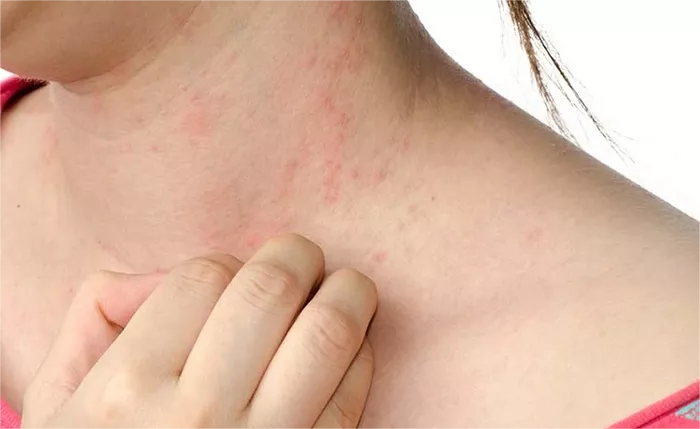Hives, also known as urticaria, are characterized by red, raised, and itchy welts on the skin that can be intensely uncomfortable. For many individuals suffering from hives, symptoms often worsen at night, disrupting sleep and causing considerable distress. Understanding the reasons behind this nocturnal exacerbation is crucial in managing this condition effectively.
The Nature of Hives
Hives are a common skin condition that affects people of all ages and can occur anywhere on the body. They typically appear suddenly and can last for a few hours to several days before fading away. The primary symptom of hives is the development of welts or raised bumps on the skin, often accompanied by itching, burning, or stinging sensations.
Hives are typically categorized into two types: acute and chronic. Acute hives last less than six weeks and are usually triggered by allergies to certain foods, medications, insect bites, or infections. Chronic hives, on the other hand, persist for more than six weeks and often have an unknown cause, although they can also be related to autoimmune conditions.
The Circadian Rhythm Influence
The human body operates on a circadian rhythm, which is a natural internal process that regulates our sleep-wake cycle and other bodily functions over a 24-hour period. This circadian rhythm can impact the immune system and how the body responds to various stimuli, including allergens.
Research suggests that certain immune responses associated with allergies and inflammation may be heightened during the nighttime hours. This could contribute to an increase in histamine release, which is a key factor in the development of hives. Histamine is a chemical released by the body in response to allergens, and it plays a significant role in triggering hives and the accompanying itchiness.
Environmental Factors
Several environmental factors more prevalent at night could contribute to the worsening of hives. For example, indoor allergens such as dust mites, pet dander, or mold spores may be more concentrated in bedrooms or other living spaces during nighttime hours. This increased exposure to allergens could provoke or intensify hives symptoms during sleep.
Additionally, changes in temperature and humidity levels at night may also affect the skin’s sensitivity and response to allergens, potentially exacerbating hives symptoms. The body’s cooling down process during sleep can sometimes lead to increased blood flow to the skin, making it more reactive to triggers.
Psychological and Stress Factors
Stress and psychological factors can also play a role in the worsening of hives symptoms at night. Many individuals experience increased stress or anxiety levels towards the end of the day, which can trigger the release of certain hormones and neurotransmitters that may exacerbate inflammation and immune responses.
Furthermore, the discomfort caused by hives can itself lead to stress and anxiety, creating a cycle where stress worsens hives symptoms, which in turn causes more stress. This cycle can be particularly pronounced at night when individuals are more likely to be alone with their thoughts and less distracted by daytime activities.
Treatment and Management Strategies
Understanding why hives worsen at night is essential for developing effective treatment and management strategies. Here are some approaches that may help alleviate nocturnal hives:
1. Identify Triggers: Keep a detailed diary of symptoms and potential triggers to identify specific allergens or factors that worsen hives at night.
2. Manage Sleep Environment: Minimize exposure to common allergens by using hypoallergenic bedding, regularly cleaning air filters, and maintaining a cool, dry sleeping environment.
3. Stress Management: Practice relaxation techniques such as meditation, deep breathing, or yoga to reduce stress levels and potentially improve hives symptoms.
4. Medications: Over-the-counter or prescription antihistamines can help control histamine release and alleviate itching associated with hives. In some cases, corticosteroids or other medications may be prescribed for severe or chronic hives.
5. Consult with a Specialist: If hives persist or significantly impact quality of life, consult with an allergist or dermatologist to explore additional treatment options, such as allergy testing or immunomodulatory therapies.
Conclusion
While the exact reasons why hives worsen at night can vary from person to person, understanding the potential triggers and underlying mechanisms can empower individuals to better manage their symptoms. By adopting a holistic approach that addresses environmental, physiological, and psychological factors, individuals can work towards reducing nocturnal hives and improving overall quality of life.
Related Topics:


























